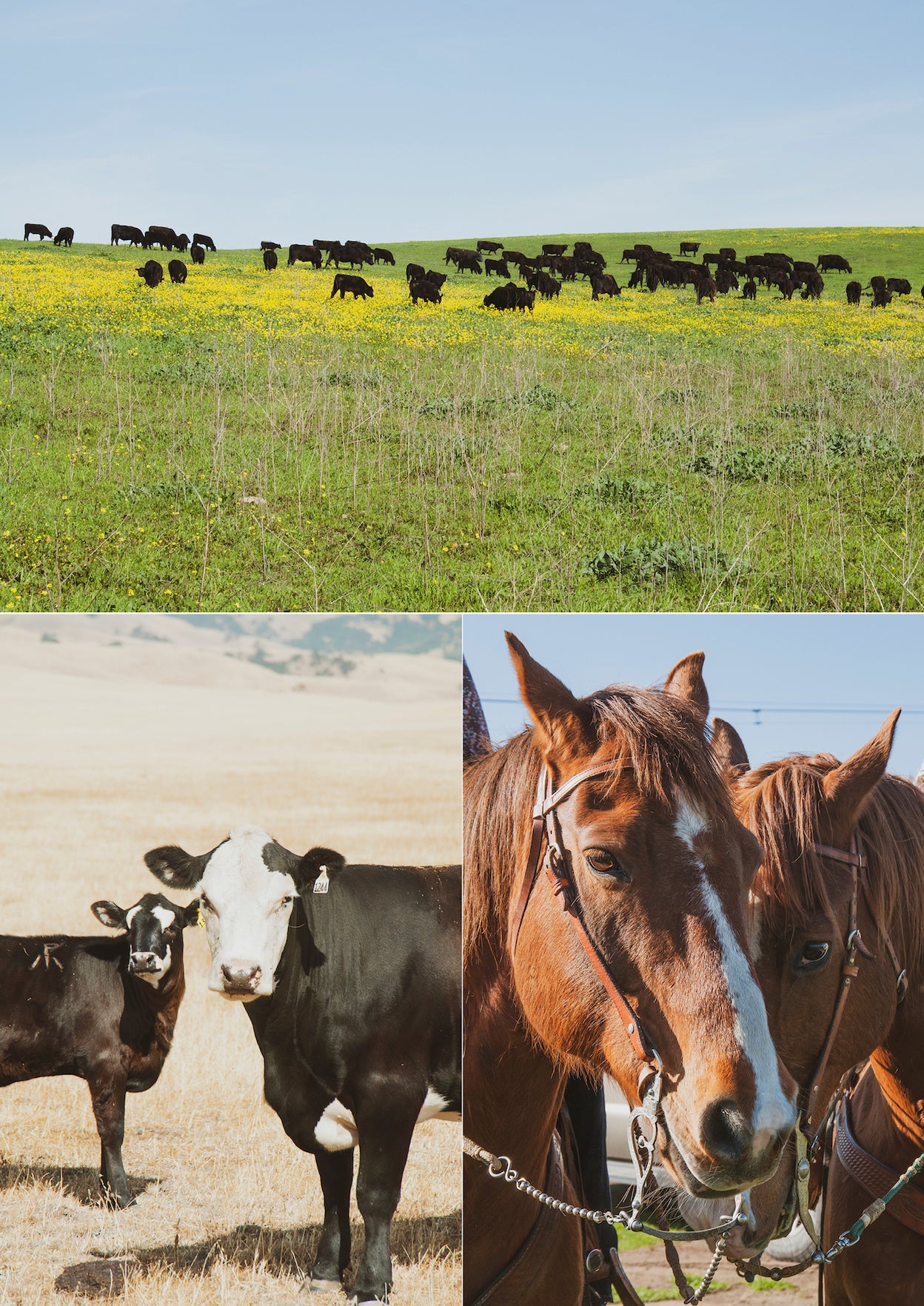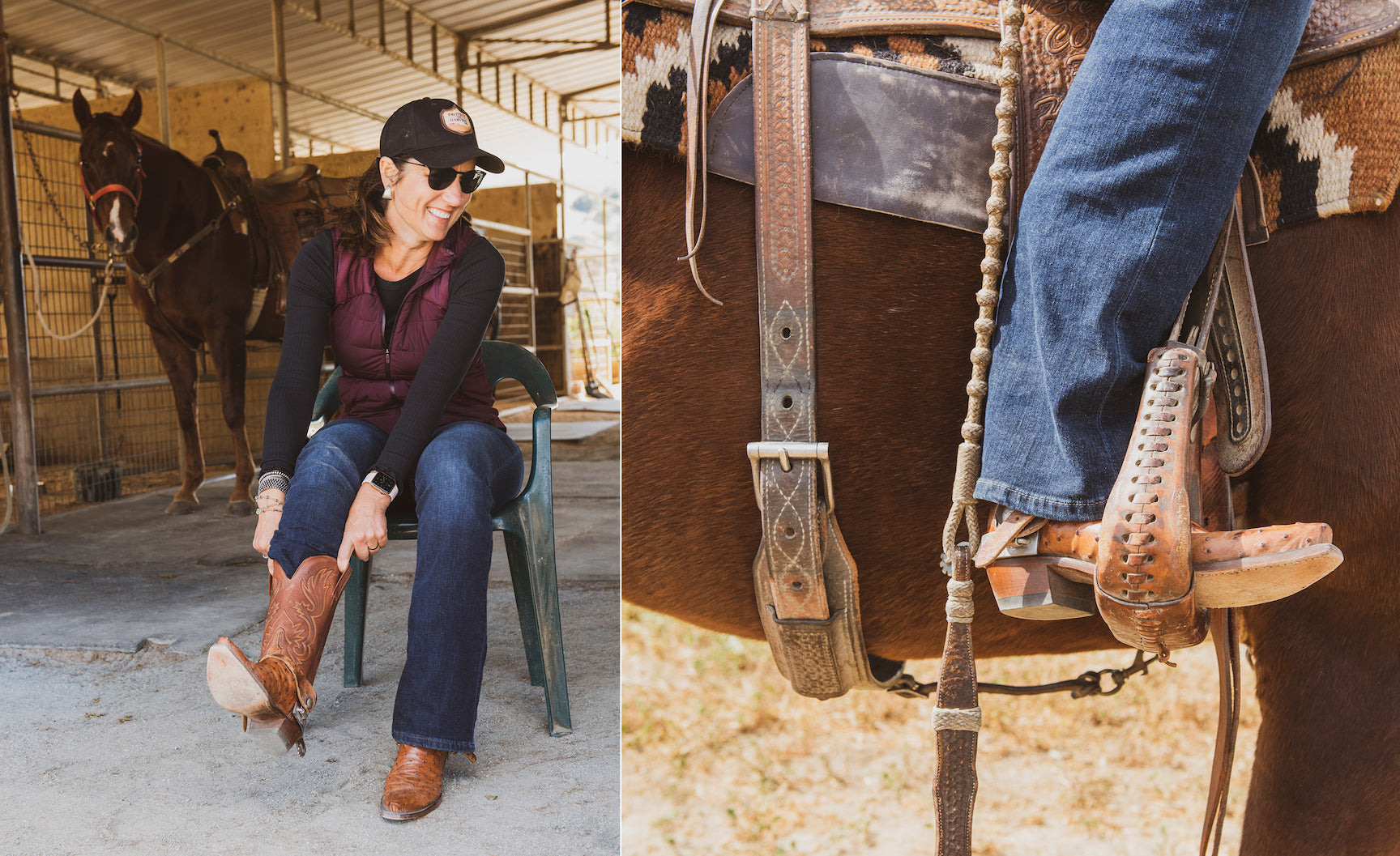As the coronavirus continues to spread, the agricultural industry continues to be crucial to grow the food we all depend on. Farmers and ranchers such as Jamii and Stan Pura are creating a positive impact on the economy as they run their cattle operation across central California, Imperial Valley, and western Arizona. Their core business is growing organic vegetables consisting of baby spinach, lettuces, arugula, and chard. They complement that offering with romaine hearts, broccoli, and celery. “It is excellent grazing ground; the combination of native grasses and climate make it excellent for raising organic grass-fed beef. We have been blessed with a good rain year and hope for great gains in 2020,” Jamii says.

Credit: Alli Pura Photography
 Credit: Alli Pura Photography
Credit: Alli Pura Photography
“We are fortunate to have an agriculture foundation and consider ourselves ‘agricators,’ she says. “We love what we do and enjoy teaching others about the importance of being good stewards to the land. We both know we are blessed with a great way to make a living and are only as good as the people that we work beside day in and day out. From irrigators, to tractor drivers, ranch managers, mechanics, cowboys, truck drivers, the list goes on and on.” We asked Jamii to share with us the origin of their family ranch and their work during the COVID-19 pandemic.
 Credit: Alli Pura Photography
Credit: Alli Pura Photography
Tell us about yourself and your family.
My husband Stan and I were both born and raised in the Central Coast area of California. We consider it to be one of the most beautiful places we have ever seen. It has a moderate climate and amazing people. Perfect for raising produce, cattle, and kids! Together, we have five daughters that keep us on our toes and two beautiful grandchildren that make our lives amazing. They all work or are connected to the wonderful agriculture industry.

Credit: Alli Pura Photography
 Credit: Alli Pura Photography
Credit: Alli Pura Photography
What did you grow up doing that led you to where you are now?
The historic conflict of farmers vs. ranchers ended with our marriage. We seem to get along despite the fact that we come from two different ag backgrounds. We can argue over the barbed wire sometimes, but we seem to laugh at each other in the end! We were both raised in production ag. Stan grew up on a small family vegetable farm and knew at an early age that farming is what he always wanted to do. He learned the basics of farming from his dad and the importance of family and great food from his mom. Fast forward 42 years and Stan, along with his partners, farms, 24,000 physical acres, of which 65% is certified organic. He spends his time between the boardroom and the seed room.
I grew up on my Mamoose & Papoose (grandparents’) cattle ranch. My parents instilled the importance of hard work and to appreciate and not take for granted the blessing of growing up in the United States. After college, I worked in production agriculture as an entomologist for organic farmers. When Stan and I got married, we decided to convert my small herd of cattle to organic, grass-fed cattle. We raise the cattle with no antibiotics, no added hormones or growth promotants ever! We feel it's better for the land, better for the cattle, and better for American families.
Tell us about your Lucchese boot collection. Which boots do you have? Do you wear boots on the job?
Years ago, Stan had a new business partner and learned that he was connected to the iconic boot brand. I had always admired the boots, mostly by looking at ads in a magazine. One day, Stan surprised me with my first pair of beautiful handmade classics with turquoise and brown leather. Lucchese became my favorite boot!
I tend to like the classics, but I also really like to wear my traditonal black western boot. It is my go-to for dressing up, which is something I don't do very often. It's great with a skirt or a dress! My last pair, which is my FAVORITE, and the most comfy for work and play is an ostrich brown pair called the Dolly that Stan bought me at the NRCHA Stallion Stakes show the kids were entered up in Las Vegas at South Point. They are phenomenal! Stan’s boots are made from the softest leather, a classic roper look. We wear our boots mostly for when we “go to town!” Even though they are a comfortable, versatile boot, we tend to treat them with the utmost respect! Though sometimes my ostrich boots find their way to the corrals to the chagrin of Stan.

Credit: Alli Pura Photography
 Credit: Alli Pura Photography
Credit: Alli Pura Photography
 Credit: Alli Pura Photography
Credit: Alli Pura Photography
Walk us through a day in the life. What does your day-to-day look like?
It seems like every day is different for us in the farming and ranching businesses. We are both early risers, and so are the kids, but that was before COVID-19. With their unusual school schedules, which have become our new normal, the teenagers have taken into sleeping in, to the irritation of their parents! Stan makes his rounds in the fields to check the crops, and I go to the ranches to check the cattle. The spring calving season was wrapping up when the pandemic hit, so the kids and myself spent a lot of time checking the cows and their new calves. It was a way to get out of the house and be outside. We consider working in the ag industry a blessing, but even more so during California’s “Shelter-in-Place.” Even our teenagers noticed how lucky they were to go to the farm fields with dad or the ranch with mom.
We thank the ranchers and farmers who are working tirelessly every day to continue to produce meat – You embrace the farm life by feeding and tending to the livestock every day. Has ranching been different during the time of COVID-19?
All the elements of ensuring a safe and healthy workplace have definitely added to our normal work day. COVID-19 has changed America's normal eating habits, and we are trying to adjust to the new normal. Organic and retail business have remained strong, but foodservice has been significantly impacted. Some of our products are consumed at home; a lot of our products are for Americans “on the go.” With consumers historically eating half of their meals at home and the other half on the road the new norm is harder to predict.
Tell us about the non-profit you’re working with.
We are working with a local nonprofit called The Change a Heart Foundation. This organization is focused on saving lives through a host of domestic and international relief efforts. Historically, it did not feed people, so it was new to them. Times like this is when you really learn how amazing the community we live in is so special! The Salinas Valley and San Benito County are blessed with giving people that make a difference every day, but they really shine in times of need.
How many meals are you making a day? How many families are you feeding?
When Shelter in Place hit San Benito County, our local food banks were overwhelmed. With the help of Taylor Farms and some key people, we started feeding 12 families the first week in our county. Five weeks later, we deliver to over 150 families per week along with 180 senior bags for Meals on Wheels, 2 senior centers, over 60 families of our local high school’s special education department, the local homeless shelter, and 200 items to local schools and the list grows daily. We have a mixed community, and it has been hit hard by unemployment or compromised health conditions. We put together a group of volunteers that quickly came together as a team to help out the best we could. Our distribution is different from a local food bank. You do not have to go through an approval process – we just need an address and the amount of people who live in the house. Sometimes it's hard to ask for help; with the way the Foundation is set up, you don't have to. We quietly and safely deliver the food to your doorstep. No questions asked. With bad comes good.
With these school closures, we have taught our kids some important lessons outside of the classroom in regard to community and business and the importance of helping your fellow neighbor. Our teenagers have learned to focus on the needs of others and had to work hard to extend kindness to others. It's been a great lesson for all of us as a family. We have been blessed to work with amazing, giving, hardworking people during this time!
Credit: Alli Pura Photography
 Credit: Alli Pura Photography
Credit: Alli Pura Photography
 Credit: Alli Pura Photography
Credit: Alli Pura Photography
 Credit: Alli Pura Photography
Credit: Alli Pura Photography
What is the best way we can support small businesses today?
The best way we feel you can support small business is to buy local and buy American. We feel so blessed to be working in Production Agriculture and that the world has finally noticed that what farmers and ranchers do every day, “is essential!”
For more information about the nonprofit foundation that Jamii and Stan Pura are working with, click here.
Credit: Alli Pura Photography






